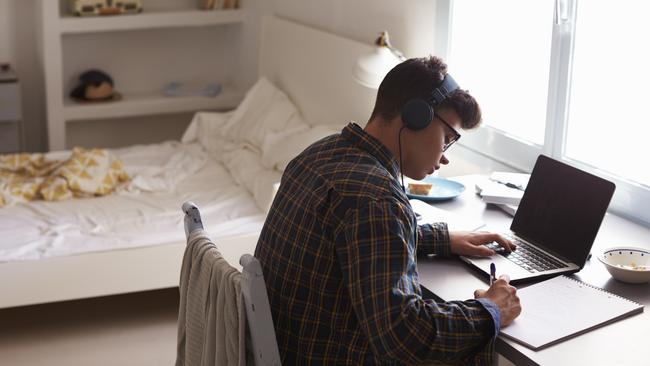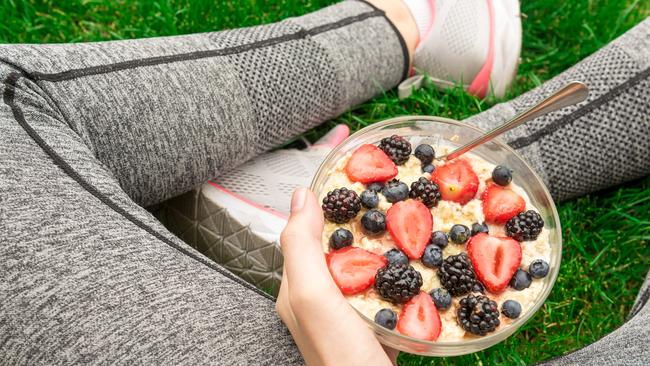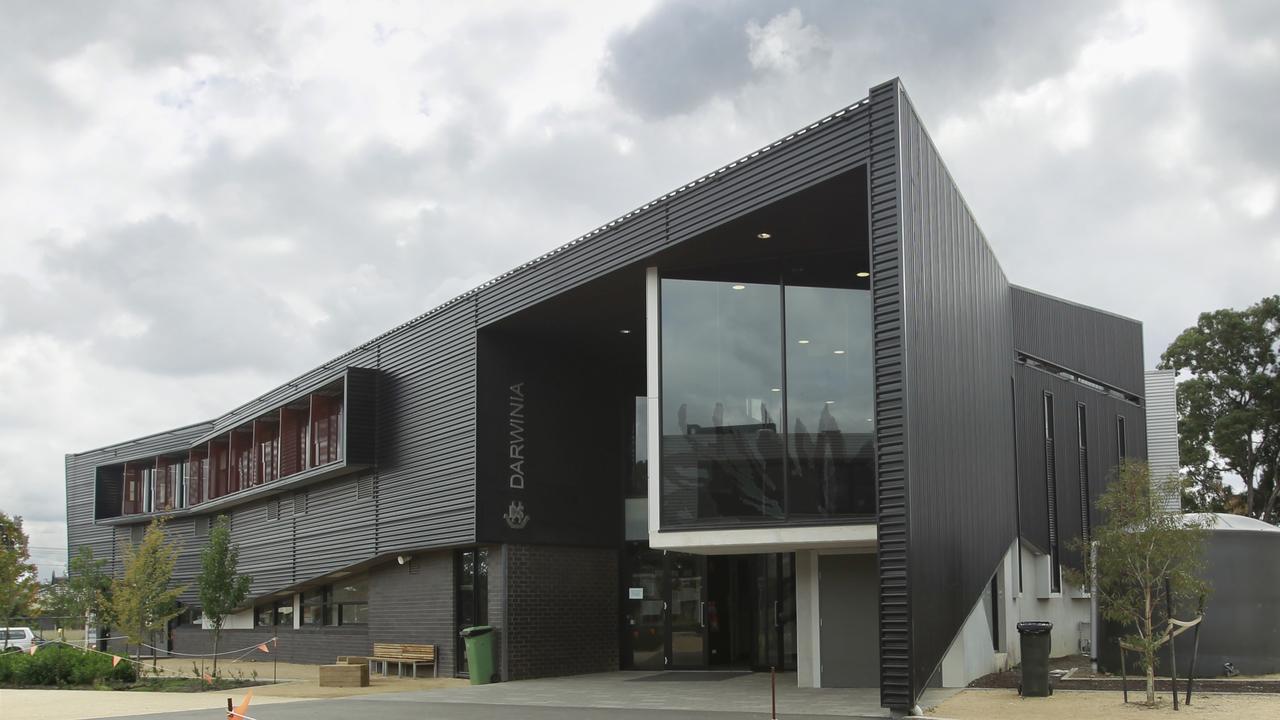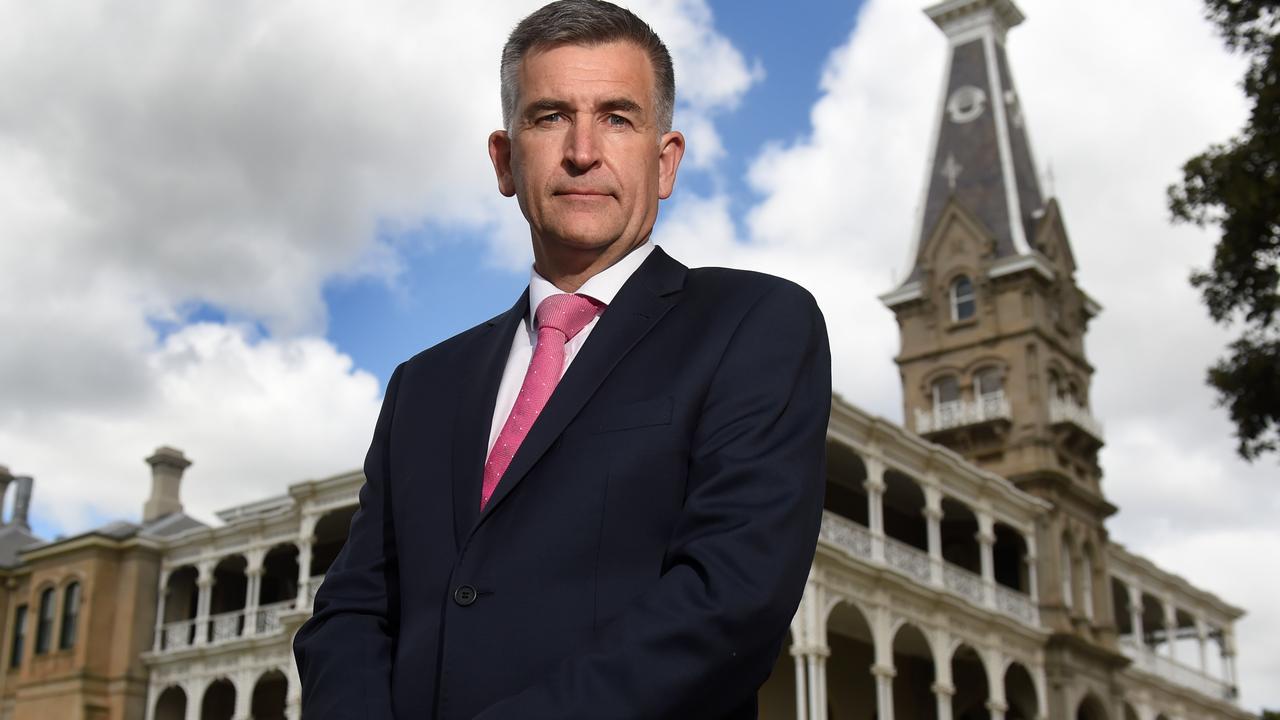University students’ advice for high schoolers heading into VCE exams
EVEN though high school is behind them, this is what university students wish they’d known about the VCE.
VCE
Don't miss out on the headlines from VCE . Followed categories will be added to My News.
THE exam period is the most nerve-racking time of the year for many VCE students.
It is the culmination of 13 years of hard work and, once that final paper has been collected, signifies the end of an era. End of life as you’ve always known it.
That’s a pretty massive deal for VCE students.
The idea of everything you’ve done up until now being summed up by an ATAR result is daunting enough.
Then, even more terrifying, is knowing that there is a whole new world out there and, regardless of whether or not the number on that piece of paper is what you wanted, you still have to step out into it.
Ready or not, the future is waiting.
It’s no wonder, then, that the stakes — and stress levels — are high leading into the final exam countdown.
More: Five ways you might be demotivating yourself
But just because VCE is a time of high-anxiety, high-pressure and high-hopes, it’s not all bad.
There are plenty of good things about your final years of schooling that can get overshadowed in the frenzied race to the finish line.
As Ke$ha sings in Macklemore’s latest banger, “I wish somebody would have told me that, some day, these will be the good old days.”
So, to help this year’s cohort of excited, nervous, highly strung, totally-freaking-out-on-the-inside students, we asked some university freshman and women what advice they’d give themselves if they had the chance to do their VCE again.
This is their advice for high schoolers who are about to sit their final VCE exams.
WHAT UNI STUDENTS WISH THEY’D KNOWN ABOUT VCE AND EXAMS

BE PREPARED
“The most helpful tip I was given was to do as many practice exams as you can! Doing timed practice exams, in silence, was extremely helpful in preparation for the time pressure and concentration required for real exams.”
— Teagan Watson, final year, Law/Arts, La Trobe University
“Don’t be afraid to ask questions! Go to your teachers to go through any questions or past exams to see where you could improve. That’s what they are there for.”
— Kimberley Gordon, 2nd year, Animal and Veterinary Biosciences, La Trobe University
“Find out what kind of learner you are: visual, audible, etc. and then play to your strengths. I’m a visual-audio learner so I would read out loud my notes and colour them in! Listening to music and colour really help when you’re studying because they stimulate both parts of your brain.”
— Sarah Gonzales, final year, Arts (Media Communications and English), La Trobe University
More: VCE exams study tips and tricks

STUDY, BUT DON’T OVERDO IT
“Quality over quantity; 40 minutes of solid, productive study is better than three hours of poor effort. It’s your journey, don’t compare yourself.”
— Michael Mojno, final year, Biomedical Science, La Trobe University
“My advice would be to start preparing early and do as many practice exams as possible; however, remember to keep a balance in your life and enjoy social events and sport.’’
— Constance Iliadis, 20, Arts/Law, Monash University
“Exams are not worth the stress. Study consistently and have confidence in yourself.’’
— Hannah Curry, 18, Commerce/Science, Monash University
“During these times remember, two-minute noodles are your friend. My favourite study food in Year 12 was ramen: it was so easy and so good! My study method was always study hard and reward yourself — that means if you study constantly for an hour, have a break, eat, watch TV, go to the movies and so on. Teamwork makes the dream work so study together. Eat, sleep, study, repeat. Remember, year 12 isn’t the end of the world — never limit yourself, you can achieve anything you put your mind to.”
— Vithuran Jogaratnam, 2nd year, Bachelor of Education, Victoria University
More: How to help your child deal with exam pressure

EAT RIGHT AND EXERCISE
“Work to the best of your own ability but don’t overwork yourself. Always keep health as your number one priority and don’t sacrifice it for study. Maintain a good diet and regular exercise as it will keep you productive and on track towards your goals.”
— Harry Pham, 1st year, Physiotherapy, La Trobe University
“People underestimate eating healthy, sleeping well and exercising regularly, which helps [relieve] stress as well as retaining information. Practice exams are also great. Try to do them at the time of your actual exam so that your body gets used to concentrating at that time of day.”
— Alex Clarke, 2nd year, Nursing/Midwifery, La Trobe University
“Salmon is brain food — I had salmon for breakfast lunch and dinner throughout SWOTVAC and exam period. Avocado smoothies are a necessity during exams! Lots of good fats. Get your eight hours of sleep. Study shows brain performance significantly improves with a good night sleep. Pathways exist. Don’t stress if you don’t make it into your dream course, there are so many pathway options. Avoid memes, they just end up demotivating you. Stick to your friends. It’s so important never to let anyone down and remain supportive throughout exams. Make the most of the end of Year 12. I promise that the social side will be missed. Be grateful to your teachers. They want the best for you and put in great effort, so remember to say thanks! Try not to cram (even though you will) and use lollies as a reward for each paragraph you read/write. Schoolies is coming but try avoid looking at photos of Surfers Paradise beach while studying. Work hard, play hard Year 12s. Do it for you.”
— Alice Growden, 1st year, Bachelor of Law and Bachelor of Commerce, Victoria University
More: 13 ways to boost memory, according to science

ON EXAM DAY
“Always leave plenty of time to get to your exam. Make sure you get there early, especially if relying on unreliable public transport. Make sure to eat something, too. You can’t concentrate if you’re hungry.”
— Ash Greig, 2nd year, Prosthetics and Orthotics, La Trobe University
“Brush your teeth in the morning with the opposite hand. This requires so much focus and cognitive processes within the brain that it helps you wake up and become more alert. This works well particularly for morning exams.”
— Samuel Papafotiou-Mollaj, 2nd year, Bachelor of Sport Science, Victoria University
“Make sure to check how long your exam is and plan out how much time you are going to spend doing each section.”
— Charlotte Usher, 2nd year, Arts, La Trobe University
More: How to handle VCE exam stress

YOU ARE NOT YOUR ATAR
“Exams aren’t the be-all and end-all! Try to stay calm and have faith in the hard work that you’ve put in throughout the year.”
— Monique Di Gregorio, 4th year, Law/International Relations, La Trobe University
“Going through Year 12, I felt that most students, including myself, viewed VCE as the definitive moment for our future aspirations but, of course, this is not the case. VCE should rather be interpreted as preparation for future possibilities.’’
— Ashley Roohizadegan, 19, Bachelor of Arts (Film Studies), Monash University
“The ATAR score doesn’t define who you are.’’
— Lana Daniels, 23, Master of Teaching (Early Years), Monash University
“I got about a 67 for my ATAR when the course requirement was I think 71 or 72. I haven’t been asked about my ATAR since I graduated in 2014 — that’s why I can’t remember! Getting into the course was an amazing relief as I was seriously stressing out. Since then I’ve studied overseas on scholarship and have been employed by Swinburne three times, now on a professional placement in a full-time role. Just because I didn’t do as well as hoped in my ATAR doesn’t reflect who I am as a person, or my capabilities. I think this was something that people say during Year 12 but is something that is hard to take in when there is so much pressure surrounding it. Take some pressure off yourself. See it as the gateway to the rest of your life — full of opportunities — rather than the be-all and end-all. Try your best, but the whole wold is ahead of you!”
— Gem Harriss, 3rd year, Bachelor of Communications (Advertising, Media), Swinburne University


